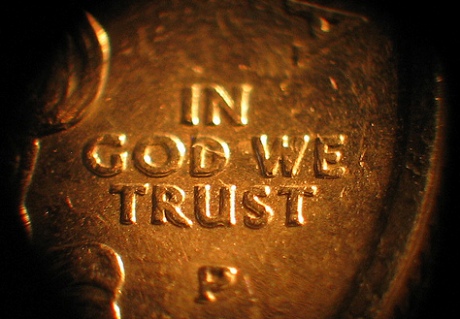 Dallas Morning News,
Dallas Morning News,
Each week we will post a question to a panel of about two dozen clergy, laity and theologians, all of whom are based in Texas or are from Texas. They will chime in with their responses to the question of the week. And you, readers, will be able to respond to their answers through the comment box.
Let’s return to an issue that we dealt with back in April, when I asked you all a question about belief. The question dealt with what it means that we may believe differently about different things. You can read answers at this link.
A couple of weeks ago, Keven Willey, the Morning News‘ editorial page editor, passed along this essay from Stanford anthropologist T. M. Luhrmann, author of “When God Talks Back: Understanding the American Evangelical Relationship with God.” As you will see from this link as well, Luhrmann gets into several lines of thought about belief and how we arrive at it religious convictions.
What I would like you to comment upon is this part of her New York Times essay:
“The role of belief in religion is greatly overstated, as anthropologists have long known. In 1912, Emile Durkheim, one of the founders of modern social science, argued that religion arose as a way for social groups to experience themselves as groups. He thought that when people experienced themselves in social groups, they felt bigger than themselves, better, more alive — and that they identified that aliveness as something supernatural. Religious ideas arose to make some sense of this experience of being part of something greater. Durkheim thought that belief was more like a flag than a philosophical position: You don’t go to church because you believe in God; rather you believe in God because you go to church.”
Applying that thinking to religion in general, not just churches, here is the question for the week:
Is belief overrated?
NITYANANDA CHANDRA DAS, minister of ISKCON (International Society for Krishna Consciousness), Dallas
Belief is not only generally overrated, it is most often fallacious, because it is based on the material mind.
To say it is overrated is to say that it has some value. Blind faith and blind doubt are to be avoided in spiritual life.
(Atheist state that the theist's belief in God is as reasonable as believing in a flying spaghetti monster)
The saintly do not believe in God, they experience and know God. Just as the educated do not believe that one plus one is two, the experience and know it.
Faith means a hope in an anticipated outcome. There is nothing that we do in life that does not involve faith. We perform our daily actions on the premise of some expected hope. However faith can be solidified by experiencing the applied hypothesis’ desired result. One needs only a small amount of belief that the experiment is worth one’s endeavor.
Information regarding non-material subjects can only come from a non-material source. The material mind, its senses, and the instruments of such senses, will never be able to validate, disprove, or discover something beyond matter.
The initial belief needed to apply the experiment of spiritual life grows from association of those are expert in the practice. Experiencing the expert’s difference in consciousness and hearing the sound philosophical principles they teach, attracts one to take up the experiment of spiritual life.
If the experiment is valid, then the result will be experienced. When the result
is experienced, the hypothesis is verified.
Therefore what Durkheim stated can be said to be true, as many religious adherents fanatically believe something yet there is no change away from exploitative consciousness.
The last consideration is that spiritual information can only remain intact if it is passed down in a teacher to disciple lineage. Just as the science of medicine cannot be preserved in books alone.


